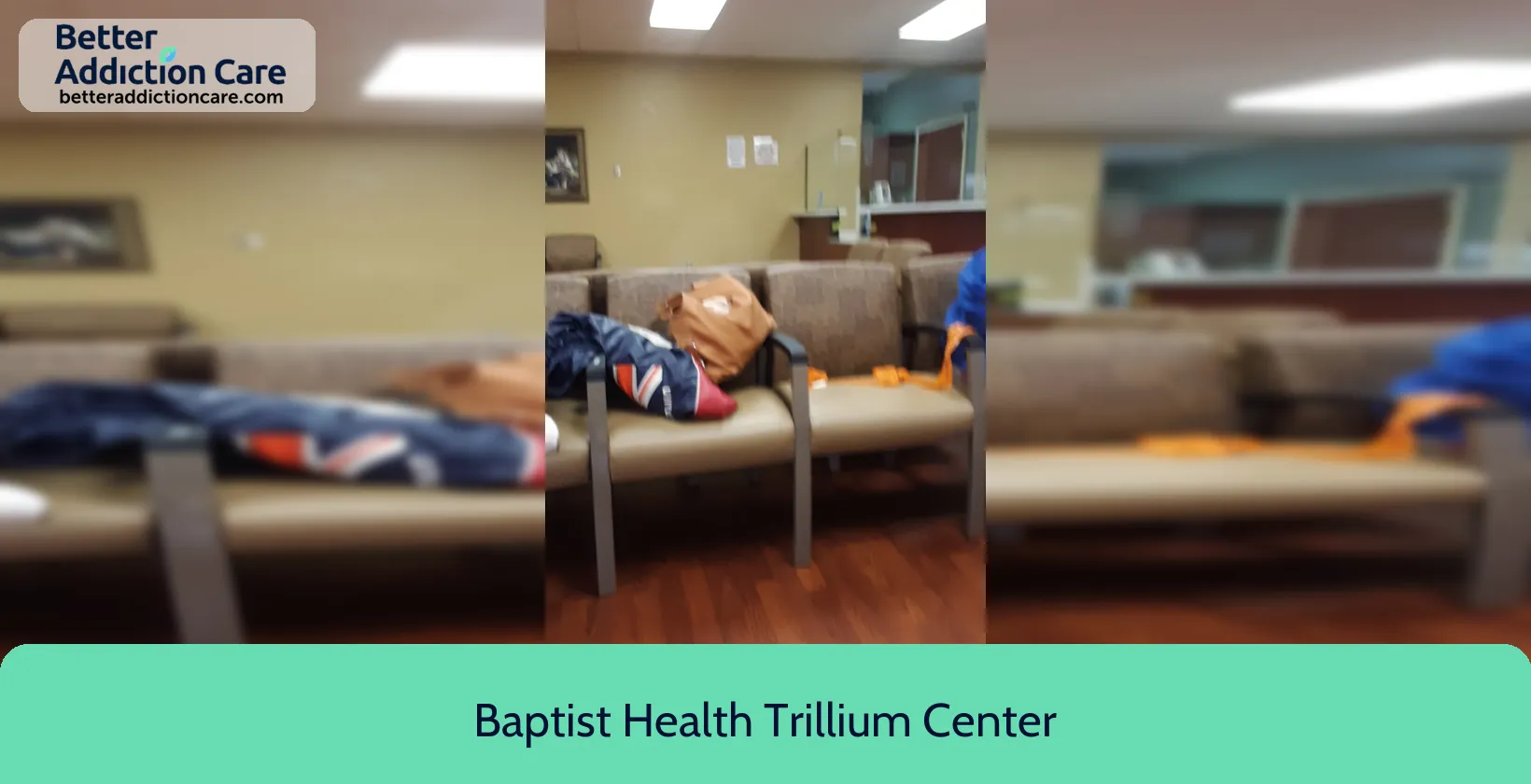Baptist Health Trillium Center
Overview
Baptist Health Trillium Center is a mental health treatment center for people seeking treatment near Whitley County. As part of their treatment modalities for recovery, Baptist Health Trillium Center provides couples/family therapy, group counseling, and cognitive behavioral therapy during treatment. Baptist Health Trillium Center is located in Corbin, Kentucky, accepting cash or self-payment for treatment.
Baptist Health Trillium Center at a Glance
Payment Options
- Cash or self-payment
- Medicaid
- Medicare
- State-financed health insurance plan other than Medicaid
- Private health insurance
Assessments
- Screening for tobacco use
- Comprehensive mental health assessment
- Comprehensive substance use assessment
Age Groups
- Seniors or older adults
- Young adults
- Children/adolescents
- Adults
- Seniors
Ancillary Services
- Case management service
- Chronic disease/illness management
- Court-ordered outpatient treatment
- Diet and exercise counseling
- Education services
Highlights About Baptist Health Trillium Center
6.77/10
With an overall rating of 6.77/10, this facility has following balanced range of services. Alcohol Rehabilitation: 8.00/10, Drug Rehab and Detox: 6.00/10, Insurance and Payments: 6.00/10, Treatment Options: 7.09/10.-
Alcohol Rehabilitation 8.00
-
Treatment Options 7.09
-
Drug Rehab and Detox 6.00
-
Insurance and Payments 6.00
Treatment At Baptist Health Trillium Center
Treatment Conditions
- Mental health treatment
- Alcoholism
- Substance use treatment
- Co-occurring Disorders
Care Levels
- Hospital inpatient/24-hour hospital inpatient
- Partial Hospitalization Program
- Outpatient
Treatment Modalities
- Couples/family therapy
- Group counseling
- Cognitive behavioral therapy
- Dialectical behavior therapy
- Integrated Mental and Substance Use Disorder treatment
Ancillary Services
Languages
- Sign language services for the deaf and hard of hearing
Additional Services
- Pharmacotherapies administered during treatment
- Mentoring/peer support
- HIV testing
Special Programs
- Clients with co-occurring mental and substance use disorders
- Children/adolescents with serious emotional disturbance (SED)
- Persons with Alzheimers or dementia
Get Help Now
Common Questions About Baptist Health Trillium Center
Contact Information
Other Facilities in Corbin

7.19

7.55

7.23
DISCLAIMER: The facility name, logo and brand are the property and registered trademarks of Cumberland River Behavioral Health - Independence House, and are being used for identification and informational purposes only. Use of these names, logos and brands shall not imply endorsement. BetterAddictionCare.com is not affiliated with or sponsored by Cumberland River Behavioral Health - Independence House.

